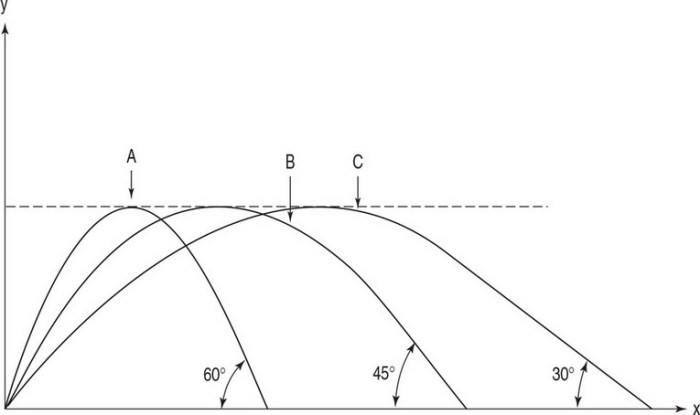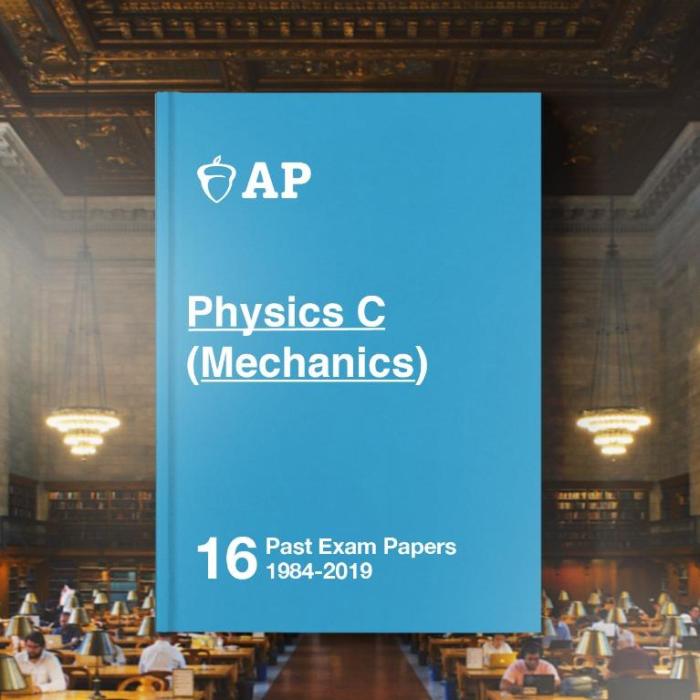AP Physics C Mechanics Practice MCQs provides a comprehensive overview of the essential elements of preparing for the AP Physics C Mechanics exam. This guide offers valuable insights into the different types, difficulty levels, and common topics covered in the MCQs, empowering students with the knowledge and strategies necessary for success.
By delving into the intricacies of AP Physics C Mechanics MCQs, students will gain a deeper understanding of the fundamental concepts and equations tested on the exam. The guide emphasizes effective strategies for solving MCQs efficiently and accurately, including time management techniques and problem-solving approaches.
1. Practice MCQs for AP Physics C Mechanics

MCQs (Multiple Choice Questions) are a crucial aspect of the AP Physics C Mechanics exam. Practicing MCQs helps students reinforce their understanding of concepts, improve their problem-solving skills, and build confidence for the exam.
Tips for Effective MCQ Practice:
- Review class notes and textbooks to grasp the fundamental concepts.
- Solve MCQs from various sources to expose yourself to different question formats.
- Analyze incorrect answers to identify knowledge gaps and areas for improvement.
- Time yourself to enhance your time management skills during the actual exam.
2. Types of AP Physics C Mechanics MCQs: Ap Physics C Mechanics Practice Mcq

AP Physics C Mechanics MCQs are categorized into three main types:
- Conceptual MCQs:Test understanding of basic concepts and principles.
- Quantitative MCQs:Require students to apply formulas and solve numerical problems.
- Experimental Design MCQs:Assess students’ ability to design and analyze experiments.
3. Difficulty Levels of AP Physics C Mechanics MCQs
MCQs in the AP Physics C Mechanics exam vary in difficulty:
- Easy MCQs:Typically straightforward and test basic concepts.
- Medium MCQs:Require some problem-solving and application of formulas.
- Difficult MCQs:Involve complex scenarios, multiple concepts, and higher-order thinking.
Approaching Different Difficulty Levels:
- Easy MCQs: Focus on accuracy and speed.
- Medium MCQs: Break down the problem into smaller steps and apply relevant formulas.
- Difficult MCQs: Allocate more time, carefully analyze the question, and consider multiple approaches.
4. Common Topics Covered in AP Physics C Mechanics MCQs
MCQs in the AP Physics C Mechanics exam cover a wide range of topics, including:
- Kinematics:Motion in one and two dimensions, projectile motion
- Dynamics:Newton’s laws of motion, momentum, energy
- Circular Motion and Gravitation:Centripetal force, gravitational force
- Work and Energy:Work, energy, power, conservation of energy
- Momentum:Impulse, conservation of momentum
- Simple Harmonic Motion:Oscillations, springs, pendulums
- Rotational Motion:Torque, angular momentum, rotational energy
- Fluid Mechanics:Pressure, buoyancy, fluid dynamics
5. Strategies for Solving AP Physics C Mechanics MCQs
Effective strategies for solving AP Physics C Mechanics MCQs include:
- Read the Question Carefully:Understand the context and identify the key concepts.
- Eliminate Obvious Incorrect Answers:Rule out options that are clearly wrong.
- Guess and Check:For difficult MCQs, make an educated guess and check the answer.
- Dimensional Analysis:Check if the units of the answer choices match the expected units.
- Time Management:Allocate time wisely, spending more time on difficult MCQs.
6. Practice Resources for AP Physics C Mechanics MCQs
Numerous resources are available for practicing AP Physics C Mechanics MCQs:
- Official AP Physics C Mechanics Practice Exam:College Board website
- Barron’s AP Physics C Mechanics Review:Textbook with practice questions
- Princeton Review AP Physics C Mechanics Prep:Online practice tests and drills
- Khan Academy AP Physics C Mechanics:Free video lessons and practice exercises
- Varsity Tutors AP Physics C Mechanics:Online tutoring and practice materials
Top FAQs
What is the importance of practicing MCQs for the AP Physics C Mechanics exam?
Practicing MCQs is crucial for exam preparation as it helps students familiarize themselves with the types of questions they will encounter, identify areas where they need additional support, and develop effective problem-solving strategies.
How can I effectively use MCQs for practice and review?
To effectively use MCQs for practice and review, it is recommended to simulate exam conditions, time yourself, and thoroughly analyze incorrect answers to identify areas for improvement.
What are the different types of MCQs encountered in the AP Physics C Mechanics exam?
The AP Physics C Mechanics exam features multiple-choice questions that can be categorized into different types, including conceptual questions, quantitative questions, and graphical analysis questions.
How can I approach MCQs of different difficulty levels effectively?
To approach MCQs of different difficulty levels effectively, it is important to first identify the difficulty level of each question and allocate appropriate time accordingly. Difficult questions may require more time and effort, while easier questions can be answered quickly, allowing you to focus on more challenging questions.